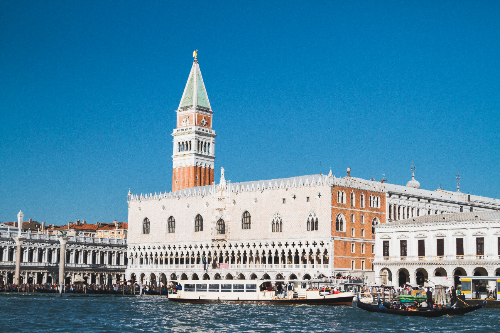Table of Contents
The home to the ancient Roman civilization has always been revered as a seat of culture and learning. With educational institutions such as the Sapienza University of Rome, which was operational since the 14th century AD, Italy is today one of the premier educational destinations of Europe. If you also wish to study in Italy, then you should definitely know about the cost of living in Italy.
Since staying in a foreign country can sometimes be quite expensive (depending on the value of your home currency), it is always better to do your research beforehand. Luckily, when it comes to the costs of living in Italy, we have done the research for you!
Here are the top 7 things you need to know before moving to Italy for higher studies or work.
Tution fee

- If you are planning to live in Italy for higher studies, then the major portion of your costs will comprise of your college fees. However, this cost may differ greatly depending on the region of Italy you are staying in.
- If you get an admission into a public university in Italy, then the tuition fee could be anywhere between EUR 0 and EUR 5,000 per year.
- Moreover, for students who are not European Union (EU) citizens, this range can vary. This is one of the main reasons why the living cost in Italy for international students is slightly higher.
- On the other hand, if you choose to study in some of the esteemed, highly accredited and world-renowned private universities, you may have to shell out anywhere between EUR 3,000 to EUR 35,000 per year.
Accommodation
- Accommodation costs in Italy, just like anywhere else, greatly depend on the city you live in.
- Regardless of which area you are placed in, there are a few options you should keep in mind. Like you can choose to share an apartment with a few students or peers. This will significantly reduce the monthly housing costs per head. This means if the monthly rent is around EUR 400 and you share that with 3 other students or peers, your housing costs will come down to a mere EUR 100 per month.
- You could also consider staying with an Italian family as a paying guest (PG). By doing this, you can significantly bring down your average cost of living in Italy. Moreover, you can also get to learn about Italian culture up close.
- Most students who are living in Italy to complete their diploma, undergraduate or postgraduate studies, prefer living in student accommodations. This is a cheaper option that you could avail of since such student accommodations are available starting from EUR 250 per month.
Exchange rate
- One of the most important factors that you need to consider when choosing to live in Italy is the currency exchange rates. If you hail from a country whose currency is weaker than that of Italy, then your costs of living will be significantly higher.
- However, if the currency of your home country is stronger than that of Italy (Euro), then you may find it relatively easier to cope with your expenses.
- Here’s a list of currencies that are stronger than the Euro to get you started on what you can expect when it comes to calculating the overall living expenses in Italy for international students.
- Kuwaiti Dinar
- Bahraini Dinar
- Omani Rial
- Jordanian Dinar
- British Pound
- Gibraltar Pound
- Cayman Island Dollar

Location
- As mentioned earlier, the total costs of living in a country like Italy depend to a large extent on the city you choose to live in.
- Rome (the capital city), Milan, Florence, Genoa, and Bologna are some of the most expensive cities in Italy.
- On the other hand, cities like Noto in Sicily, Merano in South Tyrol, Promontorio del Gargano in Puglia, Matera in Basilicata, and Urbino in Marche are some of the most affordable cities in Italy.
- Here is a list of the overall average costs of living in some of these affordable cities. This will help you make an informed choice when thinking about where to live in Italy on a budget.
| Name of city | Region | The average cost of living |
|---|---|---|
| Noto | Sicily | EUR 1,000 to EUR 2,500 a month |
| Merano | South Tyrol | About EUR 1,200 every month |
| Promontorio del Gargano | Puglia | Around EUR 1,000 per month |
| Matera | Basilicata | EUR 1,200 to EUR 1,300 per month |
| Urbino | Le Marche | Around EUR 1,20 every month |
Spending habits
- It is not always true that staying in an affordable city will lower your overall costs of living. Your spending habits and inclination towards luxury and opulence can have a great impact as well.
- For example, eating out at various picturesque cafes and boutique restaurants in Italy can increase your monthly living expenses, both as a student and as a working professional.
- A meager meal at any of the restaurants in Italy can cost around EUR 15 to EUR 18 per head while a meal for one at an expensive restaurant can go up to EUR 70. If you avoid eating out frequently, then your monthly cost of living in Italy can reduce substantially.
Transportation costs
- Coming to the costs of a daily commute, Italy ranks relatively higher than most popular study abroad destinations like the USA, Canada, Australia, and the UK.
- The weekly transportation costs in Rome (the capital city) can be around EUR 24 for a single person. Similarly, the average bus fare in and around Rome is around EUR 5. If you choose a more personalized mode of transport, like taxis, then this cost will go up further.
- Hence, it is advisable to avoid traveling too much (other than for leisure activities). This means that if you wish to reduce your monthly transportation costs in Italy, you should preferably choose an accommodation that is closer to your university or workplace.

Overheads
- Apart from all of the costs mentioned above, there are several other overheads that may increase your monthly cost of living in Italy.
- One of the most significant overheads is the costs of visas and health insurance. For example, if you are planning to complete your higher education in Italy, you will have to apply for a ‘D’ type visa, which costs around EUR 50.
- Moreover, you will have to obtain a permanent resident’s permit within 8 days of reaching Italy (if you wish to live there for studies or work).
- Another expense includes applying for the European Health Insurance Card, which enables you to avail of free healthcare at Italian public hospitals.
- Apart from these, there are phone and internet bills that usually amount to EUR 50 per month.
- General entertainment and recreational costs in Italy can be around EUR 40 per month per person.
- Moreover, if you are a student, then textbooks, other study material, and stationery items may increase your cost per month of living in Italy by EUR 50.
Money-saving tips
- Equipped with all the required knowledge about living in Italy, you can now carefully plan your future education or professional practice in this beautiful European country.
- If securing a graduate or postgraduate degree from some of the esteemed universities in Italy is your aim, then you should plan to live in the hostel of the respective institution to reduce your monthly costs.
- Similarly, if you are moving to Italy for professional purposes, then it is better to find accommodation near your workplace (or avail of the one provided by your employer).
- Finally, you could also take up a part-time job as a student in Italy. There are many offices and other business establishments that hire students for internships and freelance employment. The pay is good enough to help you support yourself and meet the costs of living in Italy.
That’s all for now! If you have any more questions about which program to choose, you can drop a comment below on reach out to us.
Liked this Blog? Read Study in Italy | 10 important things you should know!
FAQs
1. What are the rules of living in Italy?
There are some really interesting rules that you have to adhere to when living in Italy. For example, you cannot commit crimes against fashion, you cannot make sandcastles at the beach, you cannot wear noisy footwear, and many more.
2. Where to live in Italy?
Some of the best places to live in Italy are Rome, Abruzzo, Tuscany, Northern Italy, and Sardinia, especially for those who love an outgoing city life as well as a quiet, secluded, and peaceful life.
3. Why is Italy a good place to live in?
The biggest reason for living in Italy is the rich architectural and artistic heritage that can be seen almost at every corner of every road. Moreover, Italy is the only place in the world that has the most number of UNESCO World Heritage Sites (58).






